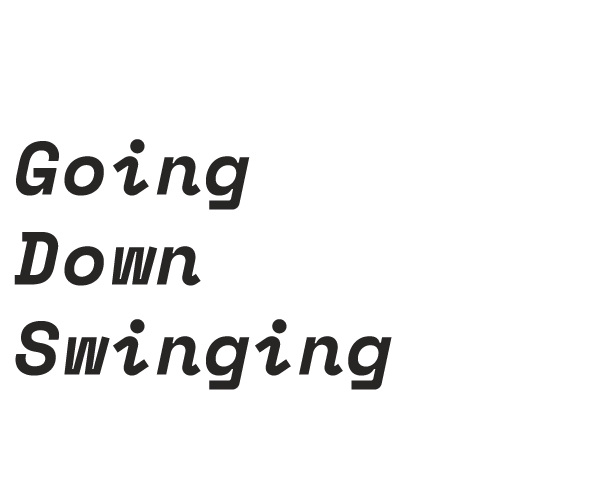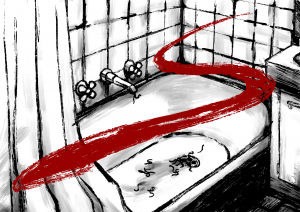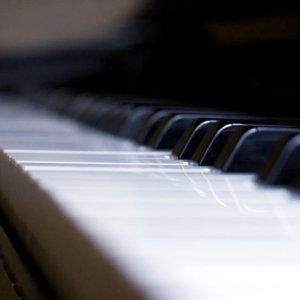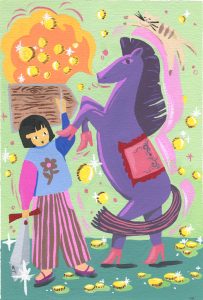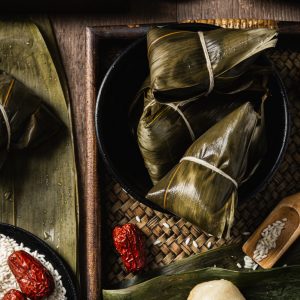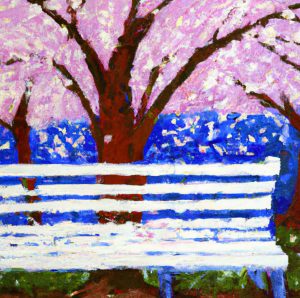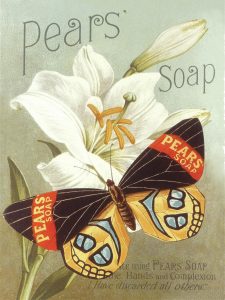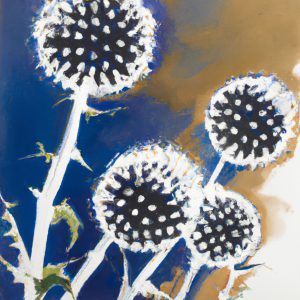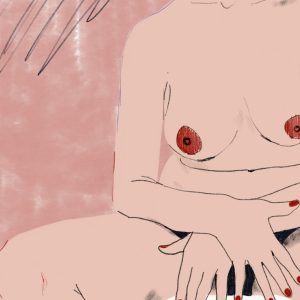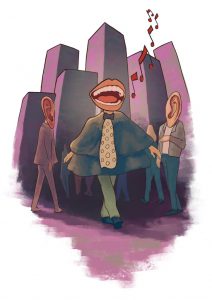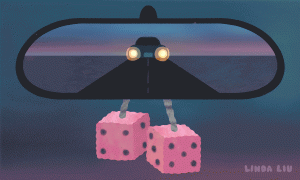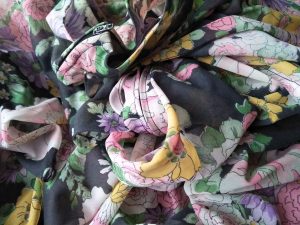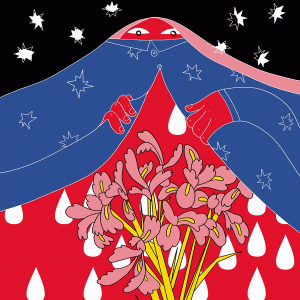Whenever someone plays Dave Dobbyn’s ‘Welcome Home’, my body begins to sweat. The opening acoustics are generic enough—gentle guitar twangs, meandering piano notes—but then the bass comes in, Dobbyn opens his mouth and you hear the harsh grit, a word that tips, teeters, one word, two words, three words: “tonight I am feeling.” When my mother decided to start her own radio program, she chose ‘Welcome Home’ as the intro track. She chose it, I think, because of the chorus, where Dobbyn’s restrained mumble becomes a croon: “welcome home, I bid you welcome, I bid you welcome”. Home; belonging; it was this fraught feeling my mother spoke to in her radio program. In each episode, she interviewed friends, students, asking them about their experiences of assimilation and cost in moving to New Zealand; “you have sacrificed so much,” Dobbyn sings, to be in “such a strange land.” In the first poem I wrote, I end “I do not tell her/ I wrote sacrifice in my book/ but I did not know where to begin.” This strange land has been the undoing of both of us.
When she misses Malaysia, my mother puts on a song by Cecilia Cheung, whose voice quivers like a Cantonese opera singer. Searching for her lyrics on Google, I am struck by what my memory retains, and what it omits. I try ‘cecilia cheung wo lai’ because all I remember are those two words, rattled and breathy during Chinese New Year. I don’t even know if ‘wo lai’ are words in Cantonese; I’m trying to articulate a sound, a texture in a murky land. Searching for the remnants of my ancestor’s tongue is stabbing for sounds in the colonised dark. On the other hand, I remember Kim Hill with simple clarity. She was the broadcaster for Saturday Morning on Radio New Zealand, and it was her voice that ebbed and flowed throughout our Saturday mornings as we stumbled out from our bedrooms, waited for baked beans and fried eggs in our pyjamas; it was her voice that lazily unravelled the weekend. Kim Hill’s drawl is flat, nasally; she talks like her mouth is full of rocks. Cecilia Cheung uses two words, two words that I can’t even guarantee are right. “What’s the name of the song by Cecilia Cheung which is always played during Chinese New Year? Something wo lai?” I text my mother. She texts back, “Cecilia who?”[1]
I’m trying to articulate a sound, a texture in a murky land. Searching for the remnants of my ancestor’s tongue is stabbing for sounds in the colonised dark.
Upon arriving in New Zealand, a customs officer at the airport asked my mother if she spoke English. I was the only witness; my sister and father had flown to New Zealand a few months earlier to set up our damp, wooden house. As the youngest, I was the favourite. I spent the most time with my mother, but sometimes it felt like a burden—because I was the one who had to endure these strange incidents that no one else could testify to. I remember her reply, because her tone was brusque, and it was the first thing she told my father when he came to pick us up. I’m an English teacher, she told the customs officer, I studied English Literature at university. At the time, I felt embarrassed by her outrage, but now, I don’t know what I would have said. I would have overcompensated before the customs officer had even asked. I would have told him how great it was to be back at home, showcasing my accent, the slight inflection, the e pronounced as an i. My mother had similar experiences looking for jobs. In one interview, a principal of a school asked her, “Why would my students who come all the way from China want to be taught by you?” “Patience,” my mother wrote, “the Chinese character that denotes patience has a knife in the heart—it hurts not to hit out.” And so, she learnt to use her best BBC accent, as she described it to me, even though she couldn’t understand half the words her interviewers were saying. New Zealanders talk too fast, she said, everything is a question.
“Why can’t the English learn to speak?” Professor Higgins asked in My Fair Lady—it was the first film I watched and a favourite of my mother’s. From the same song, my sister and I learnt to call out to anyone; “cold-blooded murder of the English tongue!” Twice, three times a week, my mother taught ESL classes to migrants, coaxing out a gentle fumbling of a language that steered clear of cold-blooded murder. Perhaps it was here that my mother, upon hearing stories pressed upon stories of her students’ migrations first felt the seeds of a radio program beginning to sprout in her. On the phone, I ask my mother what motivated her to start a radio program. She is startled, and says, “Well, I was made redundant—” I don’t remember this, and I have to ask my mother to repeat herself. “It was the first time I’ve been made redundant in my life,” my mother is saying, “I had so much free time, and I thought—why not?” Later, my mother sends me an email. She doesn’t want me to think the radio program was a flippant decision. She writes, “You can only understand what a toothache means when you have one yourself.” The toothache is that fragile feeling, that word: belonging.
My mother’s tape recorder was a metallic, rusty red. There were probably microphones, wires, but all I can see is the thin cylinder—almost like an MP3 player—which she would lie flat on the surface of a large book. She recorded her interviews wherever her subjects were most comfortable, which often tended to be in their own homes. This was how I came to sit in people’s kitchens during the school holidays, watching my mother set up her equipment while her friend and interviewee would make tea. Sometimes I would sit beside her as they talked, feeling like a secret presence that hovered over the static, a presence transmitted, translated into muted waves. Other times, I would sit in a separate room, read a book, look at people’s mantelpieces. This is all I remember of my mother’s radio program: never the finished result, but the waiting, the voices murmuring, Dave Dobbyn played on loop. She never brought up when the program aired or where it played. I wonder how she felt when the recording went to air, listening to her own voice and imagining the people who were listening to it. I wonder if she felt embarrassed, a little nervous, like I do when I share my writing.
The first thing I am struck by is the high production value. I am listening to old episodes of her program, which she has kept in stacks of CDs. It’s almost as if I thought her radio program was a sort of pet project—like my father’s insistence that I went to Chinese school one weekend—a project that is fleeting, haphazard. Instead, my mother is polished. Her BBC accent is clipped, high-pitched, alien to my ears. She says, “Hello, my name is Joanne and you’re listening to Welcome Home on Access 783.AM” and my stomach clenches. In Episode 1, her friends—Jane, San Ying, Naomi—are gentle, good-natured, even when my mother probes. I recognise one voice: Jane, who would feed me kimchi and bulgogi whenever I came over. In the recording, her voice oscillates between gushing enthusiasm and a reserved diplomacy. My mother asks, “Do you feel accepted here?” and Jane sounds like she’s smiling when she replies, like she knows what my mother is trying to get at, but she’s not willing to play the game. “It all depends,” she says. “Sometimes you meet friendly people, sometimes you meet quite nasty people… it happens in Korea too.” Later, they all join in a chorus of agreement; they like the Wellington wind, the freshness. Naomi says, “Once you land in Wellington airport—even the breeze—oh the cold, it’s just really fresh.” My mother responds, “You love the cold, you love the wind, you love everything.” They laugh and my mother moves on. It’s a flash of her sardonic humour, the thing my friends would comment on—your mum’s so funny!—a lapse from the otherwise neutral interviewer. My mother does not want the pleasantries of how good New Zealand is for migrants; she wants the brittleness of two edges rubbing against each other. Tell us, she says, after San Ying has told her New Zealand is “paradise on earth”, tell us some of the things you don’t like.
In Malaysia, I see her sweating and irritated, but also touching the wrists of her friends. When they ask her how New Zealand is, she eludes sentimentality, makes jokes like: “Everyone calls it a boring paradise.” In New Zealand, I see her rising for her morning walks, piling library books on bookshelves. Paradise on earth, San Ying said. In the recording, there is an “oh!” which faintly cuts through the murmurs of agreement from the group—it’s my mother’s. Was my mother smiling, nodding when San Ying said this? Was her exclamation to affirm, or humour, or was she responding to someone else? I want to ask my mother the same questions that she asks Jane, San Ying, Naomi, but she is lost forever in that recording; impenetrable, a voice probing the ground. When we have all left, moved to different countries/cities/suburbs for work and university, when my mother’s radio program ends, she will remain the only constant, the solo guardian of our house. Now, she tends to her new students and plans new walks. Recently, she sent on WhatsApp a picture of the sky and the Wellington harbour flushed pink. “Beautiful sunset,” I text back. “Sunrise,” she corrects.
[1] I found out later that the singer I was thinking of was called Teresa Teng. She sang in Mandarin.
